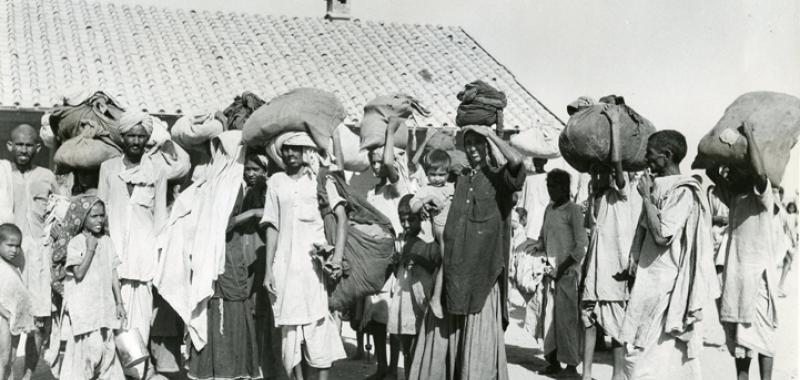
Dr. Furrukh A. Khan, Associate Professor, Department of Humanities and Social Sciences at the Mushtaq Ahmad Gurmani School of Humanities and Social Sciences is compiling the oral histories of the people who experienced partition and were at the Walton Refugee Camp which was the biggest refugee camp at the time. In a discourse about the 1947 partition of the Indian subcontinent, this camp, set up in Lahore became a central place for the start of the formation of a national identity. The project includes collecting stories, experiences, mementos and pictures of the refugees of the Walton Camp.
The Walton Refugee Camp Project is a compilation of oral history narratives about the partition and the experiences, the people of the Walton refugee camp have undergone. Dr. Furrukh Khan, who has completed both his Master’s and PhD in Post-Colonial Studies from University of Kent at Canterbury, finds this work to be both of academic interest and a personal passion.
Dr. Khan’s Master’s dissertation on the works of Bapsi Sidhwa and his subsequent study of partition literature led him to be fascinated with the recording of experiences relating to the Indo-Pak partition. Since the majority of the population who experienced partition as a collective did not have formal education, their narratives were not written, and hence not part of the collective trauma suffered by those who were forced to migrate.
Partition was an event that has played an important role in the formation of a national identity. The state may have neglected this but as an academic, Dr. Furrukh feels the responsibility to document this highly significant experience and to disseminate it to a wider audience.
Dr. Khan strived to make sure that the narrative of those who experienced partition was not undermined. Therefore he started focusing on oral narratives and talking to people who had experienced the partition first-hand. The aim of the project is to find out how and when, be it overtly or covertly, the state’s narrative is established.
The refugee camps were the first place where the state was in action. It was also the first contact with the migrants. The Walton Refugee Camp was the biggest refugee camp on either side of the border and yet, there is no documentation on it. In a discourse about the partition, one indirectly talks about what happened in Punjab because it was in this region that the largest exchange of populations took place. The camp, set up in Lahore was the largest of its kind and became a central place for the start of the formation of a national identity.
Currently, the project is researching on people who experienced it first-hand. This includes collecting stories of the refugees of the Walton Camp, their experiences, any mementos and pictures. Explaining the research methodology applied, Dr. Khan says, “Oral history has its own research methodology. It is not investigative journalism; it has all the biases written history has. One is not saying it is the absolute truth; it is a history that is according to those who experienced it. It has different meaning for everyone, recollection of experience is very difficult and thus many different perspectives exist.”
The main target of the Walton Refugee Camp Project is to house this accumulated information into a single academic institution. “These experiences took a great toll on the people at the time of partition and shaped their beliefs and ideals about their national identity, and we have been socialised into those values and ideals. Our national identity has its roots in the partition,” says Dr. Furrukh, “And we must understand or at least know the events that took place and the experiences of the people. It’s a project that is worth doing.”
Dr. Anne Christine Habbard has also collaborated on this project.
Picture Courtesy: British Red Cross









